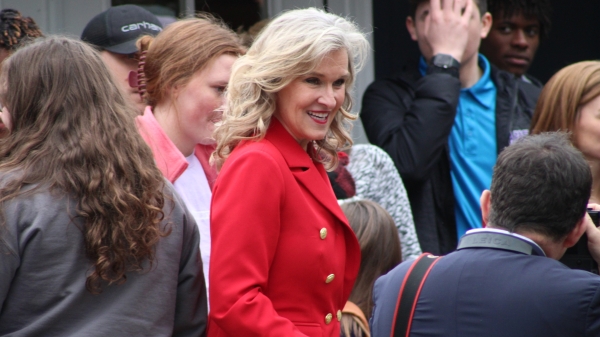By Bill Britt
Alabama Political Reporter
On September 18, the voters said yes to the constitutional amendment that would give the government leaders of Alabama the right to transfer $145.8 million a year for the next three years from the Alabama Trust Fund (ATF) to the General Fund.
Ostensibly, the money from the ATF will go to fund the state’s Medicaid program and the Department of Correction.
The arguments for and against the vote have been plentiful and diverse.
The voters have spoken now the governor and legislators must do the hard work of fixing to underling problems that are have created the forestalled crisis.
Alabama Chief Medical officer, Dr. Don Williamson, has shepherded the state’s Medicaid agency over the last five month. His reaction to the overwhelming vote by the people to fund Medicaid was one of thankfulness and caution. “I am very grateful that the people have given us time to make the transformation to Medicaid that is necessary. This is in no way a vote to say things can stay the way they are,” said Williamson. “We have no choice but to change. The challenge is having the time to do it in such a way that is rational, so that we understand the unintended consequences of our actions.”
Williamson’s appreciation was also expressed by David Spillers, CEO, Huntsville Hospital Systems. “We are excited with the results the referendum. I think we live in a time when anything that is government related the immediate answer is no, so we have to help people understand why a yes answer on something like this is the right thing to do, “ said Spillers. “We are pleased that the people of the state came out and supported healthcare for the 20 percent of the population that needs it.
Huntsville Hospital sits in the middle of Madison County which bucked the statewide trend voting no on the amendment.
Several legislators in the Madison County delegation worked hard in opposition to the amendment.
Spillers says that the healthcare community in Madison County has had and will continue to have a good relationship with state legislators and believes that “there no vote was in no way a lack of support for those of us in healthcare. In my conversations I understood that they felt there was a different way to get at funding Medicaid.”
Spillers said that his staff “had already starting working our contingency plan and the cuts that would have been necessary and believe me none of those things were things we wanted to have to do.”
Mike Marshall, CEO/Administrator of the Tombigbee Healthcare Authority, said, “This was a very important vote for hospitals in rural Alabama.”
Marshall, who grew up in Dothan when it was a small rural town, remembers how important rural hospitals are in rural communities for healthcare as well as employment.
“We have a 99 bed hospital here in Demopolis. Half of the hospitals in the state are smaller than this one,” said Marshall,
“I know how hard we have been struggling for the last couple of years not only to stay open but to stay ahead.”
Marshall said that had the amendment not have passed “small facilities in some rural hospital would not have made it.” He says that hospitals in places like Hale and Green Counties “are the largest or second largest employers in cities in those areas. “If they had to shut their door, it would have taken a bad situation and made it worse, this outcome will help everyone work toward the future.”
Coosa Valley Medical Center CEO Glenn C. Sisk has been a consistent voice in the debate over the September 18 amendment, “This favorable vote is a very positive day for Alabama as it relates to healthcare.”
He says that he believes that the voters understood the negative economic impact that not funding Medicaid would have had on the states fiscal future and that is why many came out and voted yes.
“As we think about healthcare jobs that employ around 80 thousand Alabamians, the idea of contributing to the unemployment rate and the weakening of the economy was not a very attractive alternative,” said Sisk.
“While there was some philosophical debate about how the trust fund was to be used, the idea that it was to be for a time of emergency was certainly the way people saw it and voted yes.”
Sisk states the hope of all healthcare professionals, “We hope that the next three years provides an opportunity for our state leadership to streamline government and make it more efficient and hopefully we will see the economy began to recover.”
The challenges ahead are many according to those who administer the state’s vast medical complex but all seem to agree that the problems can be met with cool heads, firm resolve and a little more time.



















































